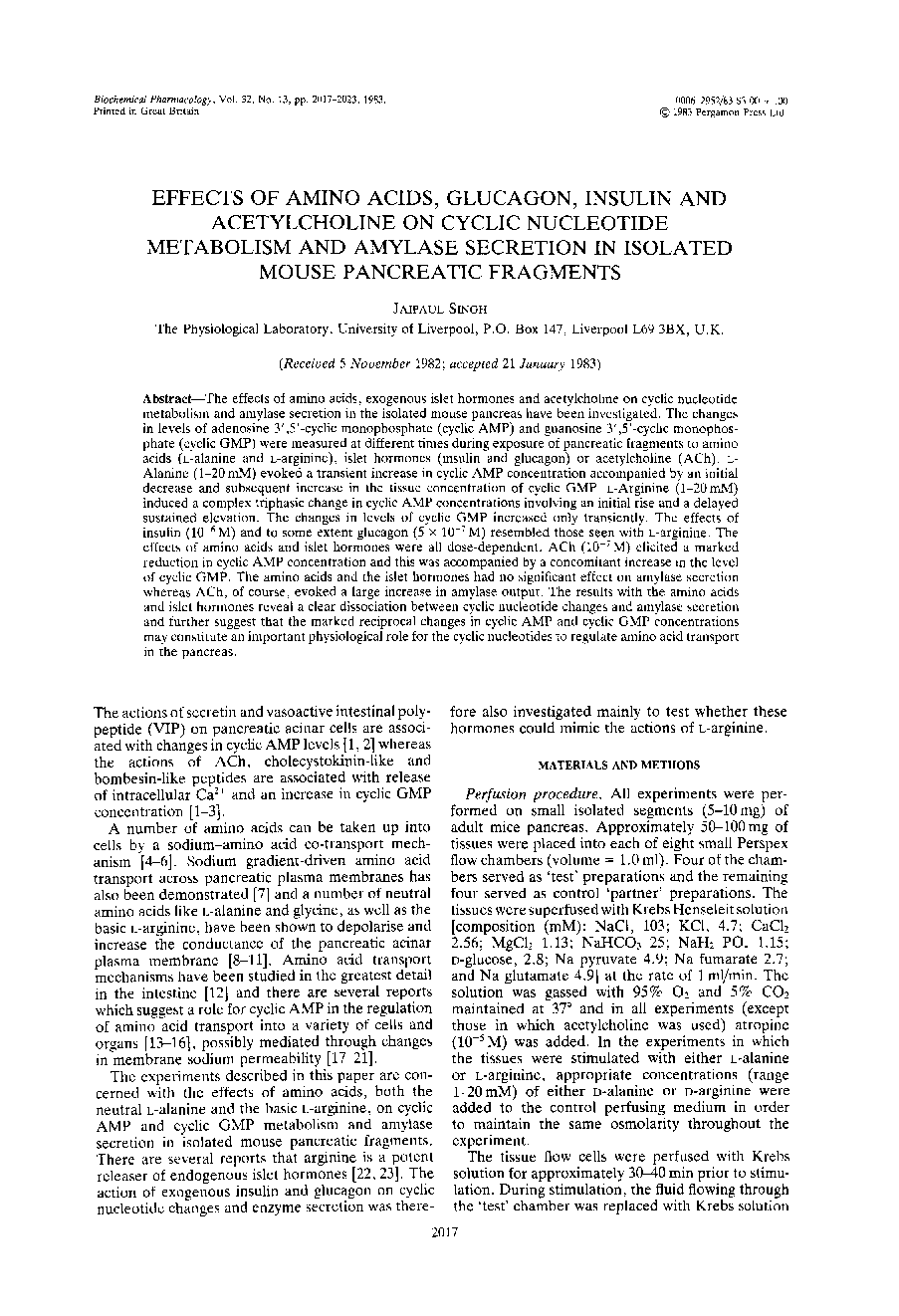| Article ID | Journal | Published Year | Pages | File Type |
|---|---|---|---|---|
| 2519610 | Biochemical Pharmacology | 2017 | 7 Pages |
The effects of amino acids, exogenous islet hormones and acetylcholine on cyclic nucleotide metabolism and amylase secretion in the isolated mouse pancreas have been investigated. The changes in levels of adenosine 3',5'-cyclic monophosphate (cyclic AMP) and guanosine 3',5'-cyclic monophosphate (cyclic GMP) were measured at different times during exposure of pancreatic fragments to amino acids (l-alanine and l-arginine), islet hormones (insulin and glucagon) or acetylcholine (ACh). lAlanine (1–20 mM) evoked a transient increase in cyclic AMP concentration accompanied by an initial decrease and subsequent increase in the tissue concentration of cyclic GMP. l-Arginine (1–20mM) induced a complex triphasic change in cyclic AMP concentrations involving an initial rise and a delayed sustained elevation. The changes in levels of cyclic GMP increased only transiently. The effects of insulin (10−6M) and to some extent glucagon (5 × 10−7M) resembled those seen with l-arginine. The effects of amino acids and islet hormones were all dose-dependent. ACh (10−7M) elicited a marked reduction in cyclic AMP concentration and this was accompanied by a concomitant increase in the level of cyclic GMP. The amino acids and the islet hormones had no significant effect on amylase secretion whereas ACh, of course, evoked a large increase in amylase output. The results with the amino acids and islet hormones reveal a clear dissociation between cyclic nucleotide changes and amylase secretion and further suggest that the marked reciprocal changes in cyclic AMP and cyclic GMP concentrations may constitute an important physiological role for the cyclic nucleotides to regulate amino acid transport in the pancreas.
